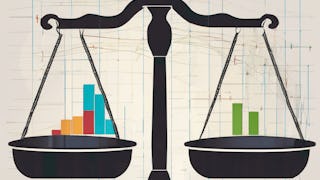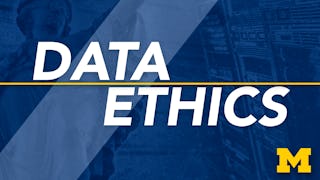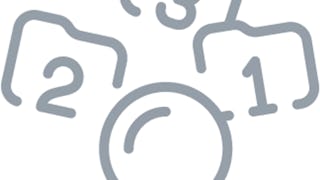Before you work with data, you must confirm that it is unbiased and credible. After all, if you start your analysis with unreliable data, you won’t be able to trust your results. In this course, you will learn to identify bias in data and to ensure your data is credible. You’ll also explore open data and the importance of data ethics and data privacy.


您将学到什么
Discuss the difference between biased and unbiased data.
Discuss characteristics of credible sources of data including reference to untidy data
Explain the relationship between data ethics and data privacy
Demonstrate an awareness of the accessibility issues associated with open data
要了解的详细信息

添加到您的领英档案
September 2025
6 项作业
了解顶级公司的员工如何掌握热门技能

积累特定领域的专业知识
- 向行业专家学习新概念
- 获得对主题或工具的基础理解
- 通过实践项目培养工作相关技能
- 获得可共享的职业证书

该课程共有4个模块
As a data analyst, it is important to understand why reaching conclusions on biased data can have real-world effects. In this part of the course, you'll learn what bias is, how it affects data, the types of bias, and how to spot it.
涵盖的内容
4个视频1篇阅读材料1个作业
In this part of the course, you will learn to identify bias in data and to ensure your data is credible.
涵盖的内容
2个视频1个作业
You’ll explore the importance of data ethics and data privacy.
涵盖的内容
4个视频1篇阅读材料1个作业
In this part of the course, you'll explore and understand open data.
涵盖的内容
2个视频2篇阅读材料3个作业
获得职业证书
将此证书添加到您的 LinkedIn 个人资料、简历或履历中。在社交媒体和绩效考核中分享。
位教师

提供方
从 Data Analysis 浏览更多内容
 状态:预览
状态:预览Fred Hutchinson Cancer Center
 状态:预览
状态:预览University of Michigan
 状态:免费试用
状态:免费试用Johns Hopkins University
 状态:免费试用
状态:免费试用
人们为什么选择 Coursera 来帮助自己实现职业发展




常见问题
Data is a group of facts that can take many different forms, such as numbers, pictures, words, videos, observations, and more. We use and create data everyday, like when we stream a show or song or post on social media.
Data analytics is the collection, transformation, and organization of these facts to draw conclusions, make predictions, and drive informed decision-making.
No experience with spreadsheets or data analytics is required. All you need is high-school level math and a curiosity about how things work.
You don't need to be a math all-star to succeed in this certificate. You need to be curious and open to learning with numbers (the language of data analysts). Being a strong data analyst is more than just math—it's about asking the right questions, finding the best sources to answer your questions effectively, and illustrating your findings clearly in visualizations.
更多问题
提供助学金,

 中
中

